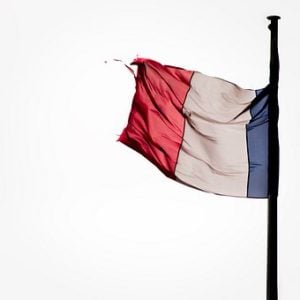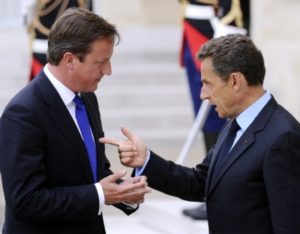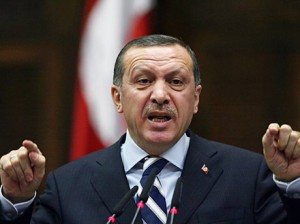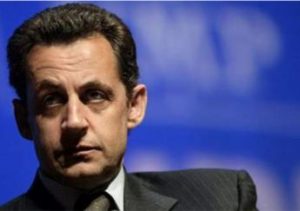 This end of year has been quite tumultuous in Europe: European citizens are in the street, rating agencies threaten to downgrade the rating of some members of the Eurozone, the race to elections is going full speed in several EU countries, all this taking place in a dire economic and political climax. The political debate in Europe has been quite violent, and France has played a considerable part to it. Under President Nicolas Sarkozy, France has been extremely active on the European and international stage leading the way in many European Summits and other sorts of meeting. However, France has also been in the middle of considerable political and diplomatic crises: one with its neighbor Britain; and the other with Turkey. These bilateral crises could spill-over to higher levels.
This end of year has been quite tumultuous in Europe: European citizens are in the street, rating agencies threaten to downgrade the rating of some members of the Eurozone, the race to elections is going full speed in several EU countries, all this taking place in a dire economic and political climax. The political debate in Europe has been quite violent, and France has played a considerable part to it. Under President Nicolas Sarkozy, France has been extremely active on the European and international stage leading the way in many European Summits and other sorts of meeting. However, France has also been in the middle of considerable political and diplomatic crises: one with its neighbor Britain; and the other with Turkey. These bilateral crises could spill-over to higher levels.
The crisis between France and Britain has reached its peak the week following the European Council to reform the Treaties on December 8th and 9th. British Prime Minister, David Cameron, vetoed the agreement that would have led the way to the construction of a fiscal union. Instead it became an intergovernmental agreement between the 17 members of the Eurozone. Germany Chancellor, Ms. Merkel, wanted an agreement among 27 in order to increase the accountability of Member States, while Mr. Sarkozy preferred an intergovernmental agreement. Ms. Merkel had to settle down with her second option because of Britain, even though she “insisted on wholesale revision of the EU’s treaties to enshrine in law the Eurozone’s promise of greater fiscal discipline.”
In the aftermath of the meeting the members of the French ruling party as well as members of the government started a war of words against their cross-channel neighbor. French Prime Minister, François Fillon, and the head of the French central Bank suggested that the AAA credit rating of Britain should be downgraded before France considering that British economy – inflation and debt – was worst than the French. French Finance Minister, François Baroin, added on French public radio that “in terms of the economic situation, one prefers to be French rather than British at the moment.” Even Nicolas Sarkozy took an active role in the vendetta by declaring that Mr. Cameron had acted like a child during the EU Summit.
As declared by a European diplomat in the Financial Times, “Nobody understood what Cameron wanted – nobody. We were talking about big things – saving the euro – and he was asking for peanuts. It was not the time or place.” Even the centrist and pro-European deputy prime minister, Nick Clegg, who declared that “I’m bitterly disappointed by the outcome of last week’s summit, precisely because I think now there is a danger that the UK will be isolated and marginalized within the European Union.” He underlined that the interests of Britain is with the EU and that being isolated could only have negative considerable economic, financial, and political consequences for Britain. Following the aggressive tone of the French government, one of the few assets across the channel has declared that the French attacks were ‘simply unacceptable.’
The second crisis concerns a project of law by the French Parliament on the Armenian genocide, which was approved earlier on today, December 22nd. Despite public manifestation in front of the building of the French Assembly and the repeated threats of the Turkish government, the French deputies passed the law, which still needs to be approved by the Senat. Under French law, the denial of the Armenian genocide of 1915 would be penalized by one year of imprisonment as well as a heavy fine. Under the law, France recognized two genocides, the Jewish genocide that took place during World War two and the Armenian of 1915. This is no secret that Ankara, the capital of  Turkey, still refused to recognize it. The question of the Armenian genocide has been at the center of Turkish membership to the EU. The diplomatic consequences between the two partners will be considerable with the possible implementation by Ankara of diplomatic, commercial and economic sanctions. Following the approval of the draft law, Turkish Prime Minister, Mr. Erdogan, declared the suspension of bilateral meetings, called back the Turkish ambassador to France, as well as putting on hold all military exercises between the two countries.
Turkey, still refused to recognize it. The question of the Armenian genocide has been at the center of Turkish membership to the EU. The diplomatic consequences between the two partners will be considerable with the possible implementation by Ankara of diplomatic, commercial and economic sanctions. Following the approval of the draft law, Turkish Prime Minister, Mr. Erdogan, declared the suspension of bilateral meetings, called back the Turkish ambassador to France, as well as putting on hold all military exercises between the two countries.
Relations between Paris and Ankara have not been at their best since the election of President Sarkozy in 2007. Mr. Sarkozy clearly expressed France opposition to the EU membership of Turkey. Plus during his presidential run in 2006-07, Mr. Sarkozy pledged for his support of a law that would penalize any kind of denial of the Armenian genocide.
However, France claims that the proposed text does not target Turkey, as it is not even mentioned in the text and expressed by Valérie Boyer, a right wing deputy. Turkey’s reaction has been to denounce the colonial past of France and all the excess that occurred in Algeria and Rwanda.
What to take from these two considerable political and diplomatic crises beyond the fact that France is in serious period of crisis and confusion. Frustrations are high in France. Even after the success of the Libyan mission and the leadership of France with Germany on trying to save Greece and ultimately solving the Euro crisis, President Sarkozy’s approval ratings are at an all-time low. President Sarkozy as well as the members of his party, UMP, are feeling the progressive shift of the political and societal wind. The level of unemployment, low growth, societal tensions, continuous strikes, erosion of the welfare state, social inequalities and so on have affected the functioning of the state and the credibility of Mr. Sarkozy’s abilities to govern and ultimately lead. By frustrating and offending its close allies and partners, France is not helping its case.
However, it would be a considerable strategic mistake for France to continue down this path for two reasons. First, France needs the support of  Britain in order to solve the crisis in Europe. A stable economic and financial Britain can only benefit the EU and ultimately France. The degree of interdependence between the island and the continent is too important to be left behind. Britain has its share of the blame and needs to either commit to the EU or leave. The status quo has lasted well too long. In this time of crisis, Britain cannot keep playing hardball, as it will not only affect its growth and political stability. Thus, the political divisions between Cameron and Clegg are unhealthy for the future of Britain. Second, Turkey has emerged as a new regional power. France cannot destroy its diplomatic, economic, military and political ties with such an important emerging power. For example, one of the solutions of the Syrian crisis lies down with Turkey. Furthermore, Turkey has been a reliable partner of the EU and its Member States. Alienating Turkey, a secular state in a conflicted region, would not be in the interest of neither France nor the EU. Thus, the Turkish-French fraught could have considerable impact on the weakening Common Security and Defense Policy (CSDP). Turkey, a NATO member, will not hesitate to block any future Berlin plus type mission affecting the success of CSDP operation as well as the cooperation between the EU and NATO on military and humanitarian matters.
Britain in order to solve the crisis in Europe. A stable economic and financial Britain can only benefit the EU and ultimately France. The degree of interdependence between the island and the continent is too important to be left behind. Britain has its share of the blame and needs to either commit to the EU or leave. The status quo has lasted well too long. In this time of crisis, Britain cannot keep playing hardball, as it will not only affect its growth and political stability. Thus, the political divisions between Cameron and Clegg are unhealthy for the future of Britain. Second, Turkey has emerged as a new regional power. France cannot destroy its diplomatic, economic, military and political ties with such an important emerging power. For example, one of the solutions of the Syrian crisis lies down with Turkey. Furthermore, Turkey has been a reliable partner of the EU and its Member States. Alienating Turkey, a secular state in a conflicted region, would not be in the interest of neither France nor the EU. Thus, the Turkish-French fraught could have considerable impact on the weakening Common Security and Defense Policy (CSDP). Turkey, a NATO member, will not hesitate to block any future Berlin plus type mission affecting the success of CSDP operation as well as the cooperation between the EU and NATO on military and humanitarian matters.
French must take a hard look at itself and have an honest discussion about its current situation and the future that it wants for itself domestically and internationally. The current presidential race could become this platform of discussion in order to shape a new future and design appropriate and needed policies. Domestic and economic problems cannot affect the ties with its partners. French’s interests need to be reassessed. It is not in the interest of France and the EU to have its government shouting inflammatory narratives. France cannot isolate itself for the simple reason that its power emerges from its international stature.
What is certain is that the EU is in serious crisis politically, economically, ideationally, and sentimentally. It will take some times before the emotions go down. In this interesting climax, we can only wish well to the new member, Croatia. It will most likely be a tumultuous Christmas dinner. Welcome to the family!